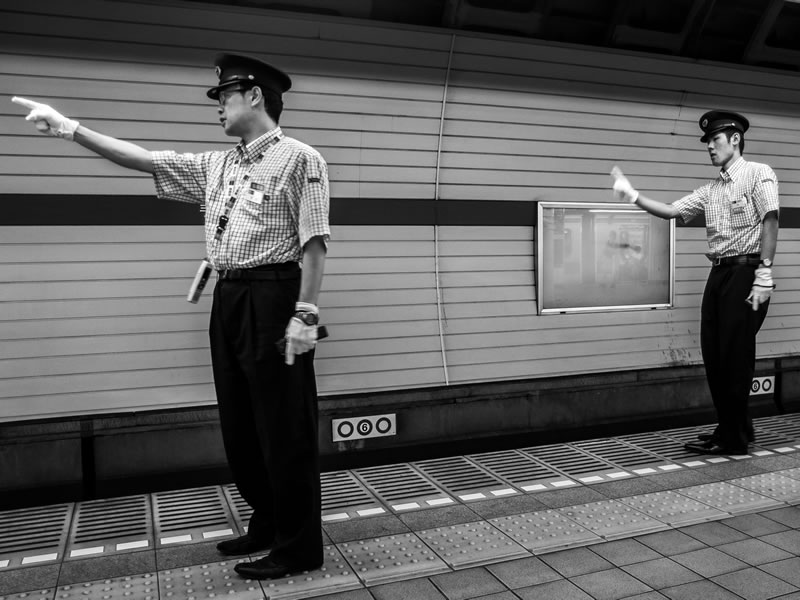
I first came across the terms “sempai” (先輩) and “kohai” (後輩) in a martial arts’ context and outside Japan; as usually happens with most elements of this culture (and probably all cultures) when they are viewed outside their frame of reference, the way they were interpreted and used had little to do with the way they are used in Japan. Ιn a male-dominated world, though this is rather strange since there is a similar paradigm from a realm everyone is familiar with, the Hellenic Army: the terms sempai and kohai are very close to what in the army is defined as “senior” and “junior”, an informal but deeply rooted and functional relationship between someone who has experience in the particular system because he was exposed to it earlier and someone who doesn’t because he just entered it. The basic difference in the army senior-junior dipole is that in the sempai-kohai relationship as used in Japan, age is a factor: sempai are seldom younger than their kohai.
One point where martial artists, even outside Japan, come close to the essence of the sempai-kohai relationship is the matter of obligations: although the basic relationship consists of kohai’s training by the sempai, in reality the two are tied in a network of obligations that goes beyond the narrow field of the school and the art. Sempai is essentially kohai’s mentor, helping them in anything they need in their life; it is often said that your sempai is the one you’ll call to bail you out if you are arrested for being drunk and the one you’ll ask to be best man in your wedding. And no matter how many years have passed (since the after-school activity, university or entering the company) they will never stop being your sempai, the person you will turn to every time you have a problem, if only for an opinion.
Of course the particular relationship is prone to abuse –wherever there is hierarchy (and given that their society was until 150 years ago divided into four clearly defined classes, those of the Chinese system “shi, no, ko, so”/士農工商 or “warriors, farmers, artisans, merchants”, hierarchy is something that comes natural to the Japanese) there will always be those who will use the privileges of their position to over-emphasize their rights and ignore their obligations. (In this respect, those who have served in the Hellenic Army will find similarities with the “senior-junior” pair.) From what I hear though, (since for various reasons I’m by default outside the system as applied in Japan), abuse here is as a rule much milder and any hazing is limited to the sempai-kohai pairs in school or college. In the workplace or in other adult fields, the thing is working in a much healthier way and in the end it contributes to the smooth functioning of the system –or, at any rate, to what passes as “smooth functioning” in Japan.
Grigoris A. Miliaresis is a journalist and translator. He has worked for many newspapers, magazines and publishing houses and specializes on the Internet, the martial arts and Japan where he has been living for the last few years.